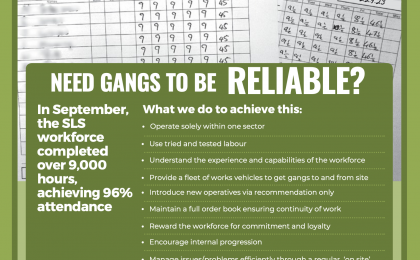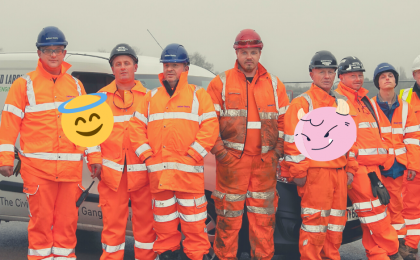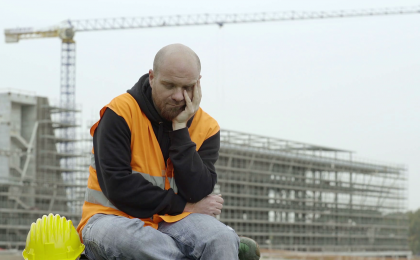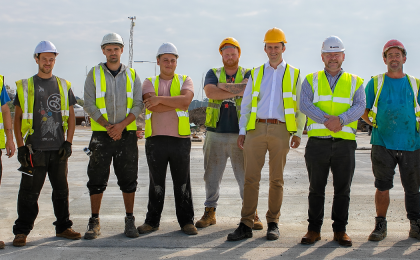The construction industry can be a challenging sector for its workforce due to long, unsocial-able hours, low wages and unpredictability. However, over the last few years, research by HSE suggests there is an even bigger challenge facing the construction industry; mental health. The number of construction workers experiencing anxiety, depression and other stress-related issues is rising sharply.
Whilst the stigma of mental health is improving thanks to many national campaigns encouraging individuals to speak more openly about mental health challenges, there still remains a high proportion of construction workers who suffer in silence. As a typically male-dominated sector, research suggests workers refrain from talking about their mental health through fear of being by ridiculed their peers and colleagues. A challenging issue to overcome.
Scale of the Problem
From 2011 to 2014, around 1419 people working in building trades and skilled construction in the United Kingdom committed suicide. Furthermore, the suicide rate among low-skilled employees in the construction sector in the same period was more than three times greater than the national average. Depression, anxiety and work-related stress cost the United Kingdom construction industry 400,000 work-days annually.
Signs of Mental Health Issues
The common signs that someone is affected by mental illness in the construction industry include:
- Isolation from colleagues and friends
- Decrease in self-confidence
- Decreased productivity
- Increased absenteeism
- Going to work physically but struggling to do the job
- Decreased problem-solving ability
- Increased overwhelming feelings and confusion
How Mental Health Issues can Affect the Job Site
Unresolved mental health problems can result in a huge cost to a business. National Building Specifications UK states these issues account for individuals requesting around 70 million days off sick on a yearly basis costing England’s economy £70 to £100 billion annually. This is because ‘off’ days have various implications including:
- Injuries and incidents worsening risk and safety metrics
- Quality defects causing rework and waste reducing profit margins
- Illicit and legal substance abuse affecting the gross profit margins
Solutions
To fight the mental health issues in the construction industry, education is key.
Leadership teams should launch educational programs since every educated employer is a step closer to suppressing the stigma that keeps employees from facing their mental health issues. The teams should also introduce health outreach programs with enhanced suicide prevention measures specifically designed to help construction workers. Moreover, employers should educate construction workers so that they can look out for peers who are having problems with their mental health.
Employers should also create awareness about mental health issues in construction industries. It is impossible to help someone if you do not know he is suffering. This emphasizes the need for disclosure. Employers should encourage employees to open up about their issues during employee orientations. To ensure the employees share this information, leaders should create an understanding and safe culture on and off the workplace. Finally, leaders should create a culture change to mentally health workforces and workplaces by implementing a Workplace Wellbeing Strategy to develop culture change in a structured manner.
Are you suffering from low mood, anxiety, depression? Or do you have concerns about a colleague or someone you know? Mates In Mind aims to raise awareness, address the stigma of poor mental health and improve positive mental wellbeing in the UK construction industry. Their website provides a variety of advice and support for construction workers. Find out more.



















































































